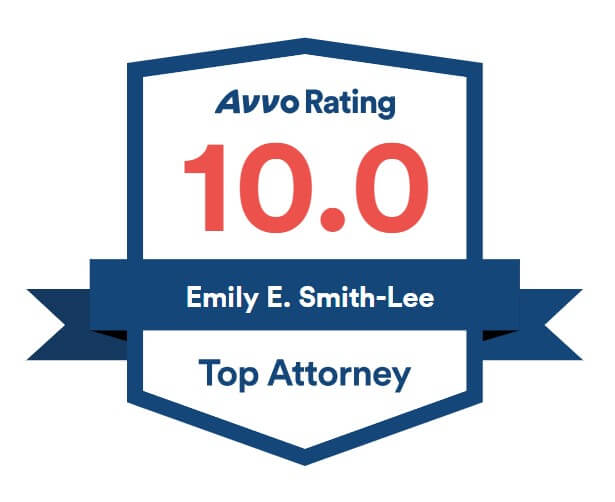Navigating Shareholder Freeze-Out and Termination in Massachusetts Closely Held Companies
Fiduciary Duties and Termination in Closely Held CompaniesIn Massachusetts, shareholders in closely held corporations owe each other a duty of utmost good faith and fair dealing. When a shareholder is also an employee of the company, this fiduciary duty must be considered along with employment laws.
Understanding Closely Held CompaniesA closely held company is any business entity whose shares are not freely traded. This could be an S Corporation, a C Corporation, or an LLC. The key feature is that the shares cannot be bought and sold on a public exchange.
Shareholders in these companies have heightened duties to each other. This is because a minority shareholder cannot easily sell their shares when they want to exit or need a return on their investment. Firing a Minority Shareholder: Balancing ActAbsent an employment contract, employment in Massachusetts is generally "at will." That means either the employee or the employer can terminate the relationship for any reason.
However, a shareholder-employee stands in a unique position. Often in small and startup companies, the employment salary is the main return on investment that the shareholder receives. That shareholder has a reasonable expectation of continued employment as part of their minority ownership interest in the company. While employment is still "at will," terminating the employment of a minority shareholder could be challenged as a breach of fiduciary duty under Massachusetts law. Whether this amounts to wrongful termination will depend, in part, on proof of the majority shareholders' motivation. If there is a valid business purpose for the termination, the majority will not face liability. Examples include documented poor performance in the role or clear wrongdoing by the employee. Conversely, if the employee is fired simply to remove them from influencing company decisions, that could be a breach of duty. Similarly, a termination designed to enrich the other shareholders at the expense of the one with minority interests could be a breach. Remedies for Wrongful Termination of a Minority ShareholderA shareholder employee can bring a legal claim for a freeze-out if they are fired without a legitimate business purpose. The available remedies, however, can be confusing. A court can award damages measured by lost wages as a result of termination.
That leaves unresolved the question of ownership in the company. Massachusetts courts have held that a court cannot force a buyout of a minority shareholder's interest as a remedy for a freeze-out. A court could order the company to re-hire the shareholder, but forcing people to work together is generally not a remedy that the courts favor. This means that the shareholder-employee will have to present a model for damages to compensate them for the loss of return on investment that employment represented. This is inherently somewhat speculative, and can make proving damages complex. The parties, of course, can and often do reach a settlement that is essentially a buyout of the shares. The Importance of the Shareholders AgreementThe shareholders' agreement, or the operating agreement in the case of an LLC, will control most aspects of the shareholder relationship. It is important for the minority shareholder to read and understand this document.
Massachusetts law allows shareholders to define the scope of their duties by contract. This means that if your agreement allows a certain action, taking that action cannot be a breach of fiduciary duty. For example, the shareholder agreement may specify whether and how the company will repurchase shares upon termination of a shareholder's employment. If the company follows the procedures and valuation set forth in the agreement, the price paid for the shares cannot be challenged. If the agreement is silent on an issue, such as termination of employment, it may still be possible to challenge a majority shareholder's actions as a breach of duty to the minority. |
We're Here to Help.OR
|
Questions About the Termination of a Minority Shareholder?
Our Solutions Roadmap is a quick and easy way to share the details of what you are facing and receive preliminary feedback from a member of our team. Use the button below to get started- it is 100% confidential and 100% free.
What Law Governs the Dispute
Generally, disputes about the duties owed between shareholders are governed by the law of the state where the company was created. If your company is a Massachusetts corporation or LLC, Massachusetts law will control.
Many people, however, choose to incorporate in other states like Delaware. Shareholder disputes in a Delaware corporation will be governed by Delaware law. This is important for you to know because Delaware law generally protects the actions of a controlling shareholder more than Massachusetts law.
Many people, however, choose to incorporate in other states like Delaware. Shareholder disputes in a Delaware corporation will be governed by Delaware law. This is important for you to know because Delaware law generally protects the actions of a controlling shareholder more than Massachusetts law.
What to Consider When Facing a "Business Divorce"
The breakup of a shareholder relationship is sometimes called a business divorce for a reason. These business relationships are often formed from personal friendships in the first place. Even where that is not the case, working closely together over time to create and build a small business can make the enterprise personal.
If you find yourself in this situation, it is important to get legal advice before making important decisions.
A majority shareholder considering the termination of the minority shareholder's employment should vet the reasons for termination with an attorney. A minority shareholder facing termination should also understand their rights and obligations under the shareholders' agreement and the law.
In most situations, both parties are best served by consulting early with an attorney who can help them navigate a difficult situation without risking costly litigation and further damaged relationships.
If you find yourself in this situation, it is important to get legal advice before making important decisions.
A majority shareholder considering the termination of the minority shareholder's employment should vet the reasons for termination with an attorney. A minority shareholder facing termination should also understand their rights and obligations under the shareholders' agreement and the law.
In most situations, both parties are best served by consulting early with an attorney who can help them navigate a difficult situation without risking costly litigation and further damaged relationships.
Meet Our Business Attorneys

Emily Smith-Lee is the owner and founder of slnlaw. She is a 1996 graduate of Boston College Law School. She was previously a partner at the Boston office of a large international firm, where she worked for thirteen years with a focus on business litigation. In 2009, she started the firm that since became slnlaw, and has grown it from a solo practice to a five-attorney firm with multiple practice areas. She has been recognized as Massachusetts Superlawyer each year since 2013, and in 2018 earned recognition as one of Massachusetts Lawyers Weekly's Lawyers of the Year. She has written a book on employment law: Rules of the Road, What You Need to Know About Employment Laws in Massachusetts, and helped hundreds of small business owners with contracts, business transactions, employment law advice, business incorporation, and risk management. She has also litigated business disputes in state and federal courts.

Rebecca Rogers: Rebecca is a 2006 graduate of Boston College Law School, and has worked with slnlaw since 2013. She previously worked as an intellectual property litigation attorney for Fish & Richardson in Boston, Massachusetts, and clerked for the Massachusetts Supreme Judicial Court. Rebecca has helped clients with business contracts, employment contracts, and employment law advice.

Jenna Ordway: Jenna is a 2013 graduate of Quinnipiac Law School, and also earned an LLM in Taxation from Boston University in 2015. She has been affiliated with slnlaw since 2011, first as a law clerk and then as an attorney. Jenna has been recognized since 2019 as a "Rising Star" by Massachusetts Superlawyers. Jenna has helped many small business owners with simple and complex business incorporation, contract review, advice and analysis regarding business disputes, employment law advice, and advice about business succession considerations as part of estate planning.

Elijah Bresley: Eli is a 2014 graduate of Seton Hall Law school, and has worked with slnlaw since 2020. He previously worked for a boutique employment law firm outside of Boston, and then for the Labor and Employment department of a large Boston firm. He also spent a year clerking for the judges of the Superior Court in Hartford, Connecticut. Eli has helped our small business clients with employment law advice and defense of employment-related lawsuits in MCAD and state and federal courts.

Sharleen Tinnin: Sharleen is a 2010 graduate of Northeastern University School of Law, and has been with slnlaw since 2023. Prior to joining slnlaw, she worked with King, Tilden, McEttrick & Brink, P.C. on complex civil litigation matters. She previously worked for the United States Department of Justice, and received an "Excellence in Justice" award in 2017. Sharleen has helped clients litigate business disputes in state and federal courts, and advised business owners about succession considerations as part of their estate planning.
How We Can Help
Our experienced legal team specializes in handling disputes within closely held companies. Whether you're a minority shareholder facing wrongful termination or a majority shareholder seeking to make informed decisions, we provide expert guidance and strategies to protect your interests and maintain business relationships. You can use the button below to schedule a call back from a member of our team, or give us a call at 781-784-2322.
|
Emily Smith-Lee Rated by Super Lawyers loading ... |
Jenna Ordway
Rated by Super Lawyers loading ... |


